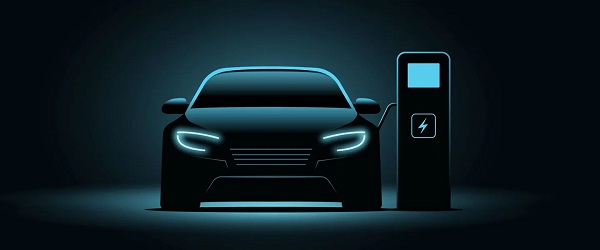Automotive
Governments in Canada should get out of EV business as Trump pulls the plug

From the Fraser Institute
Lee Zeldin, administrator of the U.S. Environmental Protection Agency (EPA), recently announced that the EPA will scrap a 2009 Obama-era “Endangerment Finding” that held: “The Administrator finds that the current and projected concentrations of the six key well-mixed greenhouse gases—carbon dioxide (CO2), methane (CH4), nitrous oxide (N2O), hydrofluorocarbons (HFCs), perfluorocarbons (PFCs), and sulfur hexafluoride (SF6)—in the atmosphere threaten the public health and welfare of current and future generations.”
After its 2009 enactment and 2016 reaffirmation, according to the U.S. Congressional Research Service, the Endangerment Finding would be the legal rationale to set greenhouse gas (GHG) emission standards for cars and light trucks, power plants, and facilities in the oil and gas sector.
There will no doubt be legal challenges to the Trump administration’s decision to terminate the finding (as there seemingly is for everything Trump), however in the event that it proceeds (and it likely will), one can expect to see the elimination of a fair number of large-scale environmental regulations that could have ripple effects on the Canadian economy.
From a Canadian perspective, the most important aspect of the repeal is that it will likely lead to the complete withdrawal of the U.S. federal government’s support of vehicle electrification. The Trump administration has already killed electric vehicle (EV) mandates and federal subsidies for the purchase of EVs, but remaining production mandates for car companies (under the guise of EPA fleet fuel-economy standards) are also likely to end, and with that, EV manufacturing and sales will likely plummet. This will leave EVs in the niche they’ve held—novelty items for hobbyists or luxury toys for well-heeled eco-virtue signallers. And California can’t bail this one out—its own authority to set more stringent environmental standards for vehicles emissions has also been terminated, along with its ability to drive the EV revolution forward.
So, policymakers in Canada should shelve (or drop into the round file) any expectation of exporting significant EV-related goods into the U.S. market. At the least, governments should suspend or eliminate Canadian EV sales mandates and “investments” based on an expected U.S. market for such goods, unless governments want to give taxpayers a soaking.
The federal government, and some provincial governments, may choose to continue supporting vehicle electrification within Canada and the creation of export capacity for EV parts and components (such as batteries) outside of the U.S. market for any number of reasons. They might justify this support based on concerns over air quality or GHG emissions. However, the logistics of such endeavours, particularly tech sales out of North America, would be daunting. EV components tend to be heavy, require exotic materials and long costly shipping lines to Europe, Asia and points abroad. And planning to sell EV components to Asia is like preparing to sell ice to the Inuit or carrying coal to Newcastle.
Canada’s vehicle electrification fixation has been dubious from the start, much like the U.S. fixation, due to the vast transport distances, rugged topography, inadequate and unaffordable battery tech and charging capacity, and in some precincts, a great deal of cold weather.
But whether one agrees with the death of the Endangerment Finding or not, a pragmatic observer should recognize that, for the next good while at least, the United States is pulling the plug on North America vehicle electrification and subsequently any expectations of profit from the previous EV regulatory milieu. For Canada, I’d argue, that means killing the EV mandate and cancelling/trying to claw back as much of the government’s “investments” in EV and EV battery technology and manufacturing as quickly as possible.
Automotive
Canada’s EV programs are crashing out

Fr0m Resource Works
Consumer appetites and changes in the global economy are outpacing government incentives.
Canada’s bold electric vehicle (EV) plan was once the big deal in the country’s climate policy, but now that reality has set in, it looks like the program is going to fail.
For years, Canadian politicians proudly led the country towards an electric future with strong rebates, strict rules, and a commitment to meeting tough emission reduction targets. But recent events have revealed serious problems that have sent the country’s electric vehicle plans into a tailspin.
The first cracks showed up earlier this year when the federal and provincial rebate programs ended. The iZEV program in Ottawa, which gave up to $5,000 per vehicle, ended suddenly in January 2025 when the money ran out. Quebec followed suit and stopped its provincial rebates for a short time.
They came back at a much lower rate, dropping from $7,000 to $4,000 in April 2025. British Columbia ended its popular rebate program completely after making it harder to qualify, which meant about 75 percent of EV models were no longer eligible. This makes it much harder for people thinking of switching to electric vehicles to make a financial case for it.
The market reacted quickly and strongly. EV sales, which had been increasing, stopped right away. Statistics Canada says EV sales reached their highest point in December 2024 when they made up about 18.29 percent of all sales in Canada. By April 2025, they had dropped to 7.53 percent.
British Columbia, which used to be the leader in EV adoption, saw its market share drop from almost 25 percent in mid-2024 to about 15.4 percent by June 2025. Quebec, which is now the leader in Canada, had similar problems, with sales dropping sharply even though the province has always been enthusiastic about electrification.
There are harsh economic facts behind these numbers. People who want to buy electric vehicles say cost is the biggest problem. Middle-class Canadians can no longer afford electric vehicles because the rebates were taken away. Infrastructure problems make this worse; public charging networks are still not good enough or reliable enough, which makes owning an electric vehicle impractical for many potential buyers.
Even though the government has been working to install thousands of new charging stations, a recent survey found 41 percent of British Columbians thought the current infrastructure was not enough.
The Canadian government’s EV sales mandate has become the big problem, making things even worse. The mandate was meant to ensure 20 percent of all new cars sold by 2026 would be zero-emission and 100 percent by 2035. Now most people think this is impossible.
Auto industry representatives, including the CEOs of Ford, GM, and Stellantis Canada, have told Prime Minister Mark Carney in no uncertain terms that the targets can’t be met in the current market. They say enforcing these rules without any incentives could cost automakers up to $20,000 per vehicle and mean fewer jobs and less production in Canada.
At the same time, geopolitical factors have made things even tougher. The Trump administration’s U.S. tariffs and the end of U.S. EV incentives and mandates have had a huge impact on the Canadian auto industry, which sends 85 percent of its production to the U.S. market.
Critics say Canada’s whole EV policy is a case of good intentions running into hard economic and practical realities. The Fraser Institute says directly that the EV mandate is the wrong way to choose which technologies will succeed and which will fail, hurting markets and putting an unfair burden on lower-income people.
Even people who care about sustainability agree the mandates as they currently stand don’t fit the market and consumer behaviour.
Canada’s EV program needs major policy changes now if it’s to survive and grow. Barry Penner of the Energy Futures Institute and other industry leaders say a more gradual and flexible approach is better. This would include bringing back rebates, improving charging infrastructure, and making sure the mandates match market conditions.
If these changes aren’t made, the good intentions behind Canada’s EV plans will be derailed, and economic stability and real environmental progress will be at risk.
Automotive
American Auto Giants Thrilled To Sell Gas Guzzlers Again After Collapse Of Biden’s EV Mandate


From the Daily Caller News Foundation
U.S. automakers are celebrating their ability to continue selling gas-powered vehicles after President Donald Trump rolled back electric vehicle (EV) mandates.
Trump signed three new bills into law in June, which terminated Biden-era rules that allowed states like California to impose a national EV mandate. These rollbacks have caused companies like Ford and General Motors to scale back their EV plans and search to leverage demand for their big SUVs and commercial vehicles, The Wall Street Journal (WSJ) reported.
“This is a multibillion-dollar opportunity over the next couple of years,” Ford Motor Chief Executive Jim Farley said last week in a call to analysts.
California and several other states imposed rules that would have banned the sale of new gas-powered vehicles in their respective areas by 2035. Trump’s new rules stripped these states of those mandates and have allowed the auto industry to continue selling gas-powered engines in new vehicles, according to The WSJ.
“It’s a very, very fast speed for the auto industry,” Tyson Jominy, J.D. Power’s senior vice president of data and analytics, told the WSJ. “But it’s faster to be able to revert to an existing technology rather than tool up and prepare for a new technology.”
General Motors switched its plan to do away with combustion engines by 2035 and have instead laid out the benefits of keeping them around, The WSJ reported. General Motors CEO Mary Barra stated that her company can “appreciate the profitability” of selling gas-powered vehicles as a result of Trump’s rollbacks.
Jeep maker Stellantis said on a call with analysts that the auto provisions in Trump’s “big, beautiful bill” will make it easier for companies to produce both EVs and gas-powered vehicles.
Ford, General Motors and Stellantis had agreed to pay nearly $10 billion on regulatory credits and fuel-economy rule-violation fines, according to The WSJ. Stellantis has expressed that it will benefit financially by no longer having to pay these fines.
Adam Lee, chairman of Maine-based Lee Auto Malls, added that large SUVs will boost companies’ sales because Americans are fond of them.
“Americans do like buying giant vehicles,” Lee said. “They’re going to see how many more giant SUVs they can pump out, because they sell a lot of them and make a lot of money on them.”
-

 Alberta1 day ago
Alberta1 day agoA misinformation bubble in action—Egale Canada v. Alberta
-

 Energy1 day ago
Energy1 day agoEnergy investors see less opportunity in Canada compared to the United States
-

 Dan McTeague1 day ago
Dan McTeague1 day agoTime is running out, Mr. Carney…
-

 COVID-1913 hours ago
COVID-1913 hours agoAgencies ordered to delete worker COVID vaccine records
-

 Business4 hours ago
Business4 hours agoCanada’s new pipeline opens a direct oil route to India, offering a sanctions-proof rival to Russian crude.
-

 Alberta5 hours ago
Alberta5 hours agoIndia and Spain are buying Canadian oil…from the U.S.
-

 Alberta20 hours ago
Alberta20 hours agoAlberta fights court order blocking ban on transgender surgeries, drugs for children
-

 Daily Caller17 hours ago
Daily Caller17 hours agoUS Judge Deals Devastating Blow to Climate Lawfare Campaign against Oil and Gas Producers





